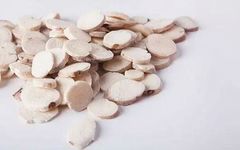Why Does Traditional Chinese Medicine Say “Blood Stasis” Causes Hundreds of Diseases? Effective Methods to Promote Blood Circulation and Resolve Stasis
“Blood stasis” causes hundreds of diseasesStasis means blockage! A series of blockages such as qi stagnation, blood stasis, phlegm accumulation, and dampness aggregation lead to dysfunction of the organs, disharmony of qi and blood, and accumulation of turbid pathogens, which in turn results in various diseases, even leading to cerebral infarction, myocardial infarction, women’s dysmenorrhea, … Read more










